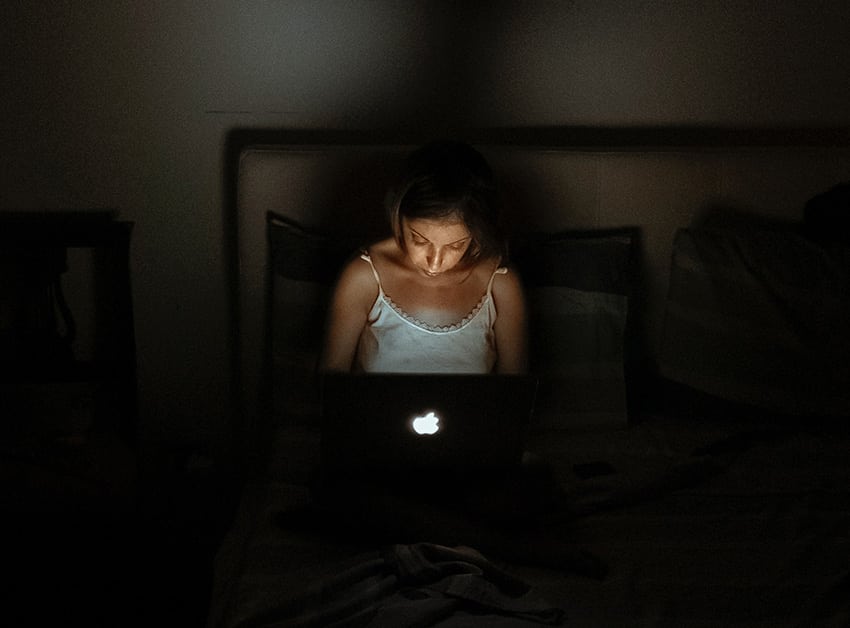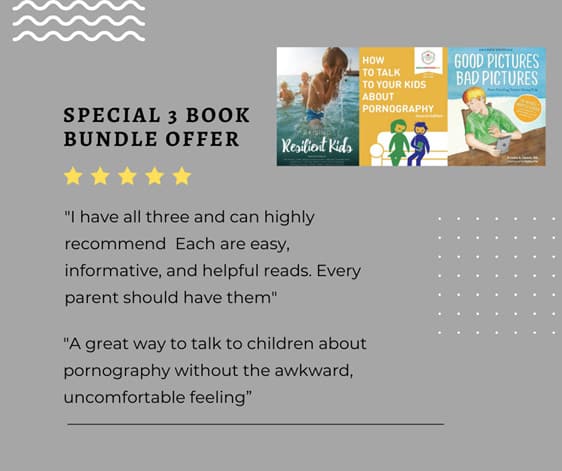
A true tale
Late in 2019, 37-year old woman Roo Powell used clothing, makeup and special tech effects to become 11-year-old Bailey, a fictitious on-line persona.
She was working with child protection on-line monitoring company Bark to get an understanding of the reality of on-line predators, in the hope of warning parents.
She describes posting her first photo and message as the pre-pubescent girl:
I was excited to see my friends this weekend at carly’s party! Ilysm!! followed by a string of emojis and a #friends hashtag
A quick response
The photo publishes on Instagram and we wait quietly for something on the big screen to change.
It does – she is flooded with approaches by men. They tell her she is sweet, call her baby, ask if she is a model. They inquire about her parents and if she is allowed a boyfriend. They specify sexual acts they want her to film for them and send ‘Bailey’ pictures of their genitals.
Powell and her team sat in a room for hours, responding to messages and requests from strangers.
The risks are real
Her experience reveals the risks faced by kids on-line.
Over the course of one week, over 52 men reached out to an 11-year-old girl.
And telling the men she is only 11 doesn’t stop them. Quite the opposite.
As Powell writes: “The brutal reality is that a predator doesn’t have to be in the same room, building, or even country to abuse a child.
“And that’s what they’re doing — subjecting children to psychological and sexual abuse”.
Over the course of one week, over 52 men reached out to an 11-year-old girl.
Week promotes awareness
This week is National Child Protection Week.
The focus on child safety is an opportune time to face the ways our children are at risk on-line with dangers exacerbated during COVID-19 lockdowns. More children have been exposed to explicit imagery.
There are no proof-of-age protections to stop children entering hardcore porn sites – although finally the Federal Government has instructed the safety commission to come up with a plan in the next 12-18 months.
More children have been pressured to send sexual pics and made vulnerable to approaches from online predators whose activity has increased over the last year.
Many parents are in the dark
Yet according to the Australian Centre for Child Exploitation, only 21 per cent of parents/carers thought that online child sexual exploitation could happen to their child.
Most days a parent contacts me to share the devastation and trauma caused as a result of grooming by an on-line predator and exposure to explicit content.
“My 11-year-old daughter was contacted by a man through Instagram threatening to hurt her and her family if she didn’t send nude pics.”
“My 9-year-old daughter was groomed in the chat room on her favourite computer game”. (“I called the police and asked them if they publish on their webpage a list of games that predators were known to frequent. They responded with, “No – predators are on all the games”).
“My daughter was sent dick pics. She’s in primary school”
It’s time to get smart
We have to face it: if our child is on-line, on any platform, they are at risk.
At Collective Shout we constantly monitor and report the behaviour of on-line predators.
They are everywhere. Instagram, for example, is a predator’s playground.
Too many parents think ‘It wouldn’t happen to my kid’. Until it does.
Resources for parents
Parents need all the help they can get right now. Here are some resources which will help you protect your children.
Esafety: https://www.esafety.gov.au.
Download their e.book on on-line safety during COVID-19.
There’s also a free ebook about online safety for parents of children under 5.
Their advice on how to protect kids from unwanted predators is very helpful. Here’s a few tips:
How can I protect my child?
- Stay involved
- Build an open trusting relationship
- Help your child protect their privacy
- Teach them to be alert to signs of inappropriate contact
How to deal with unwanted contact?
- Make their accounts private
- Report and block any unwanted contact
- Delete all requests from strangers
What to do if something goes wrong
- Stay calm and reassure your child they are not in trouble
- Act to protect your child
- Collect evidence
- Report
Advice on what to do if your child is a victim of non-consensual sharing of images (officially known as Image Based Abuse) can be found here.
Federal Police and the Australian Centre to Counter Child Exploitation
Learn how to report suspected child predators. Use this online form or visit the thinkuknow.org website.
For information on how to access support or report abuse.
Learn more about sexual abuse: NAPCAN is a good place to start.
More on-line safety support
Download software to protect your child: Family Zone has been recommended to me by teachers working in IT.
Visit Cyber Safety Solutions for free downloadable fact sheets.
Visit www.ResistPorn.og which has resources for faith communities to help address the harms of porn.
Build Resilient, Porn-Proof kids: 3 book special
Right now I am offering a special deal on three of the best books for building resilience and protecting your children from porn.
You can buy How to Talk to your Kids about Porn, Good Pictures, Bad Pictures and Raising Resilient Kids altogether for $50 (+p/h) which is 20 per cent off the usual price.
How to talk to your Kids about Porn and Good Pictures, Bad Pictures are the most accessible, practical, easy-to-read and tip-filled books I have come across to help equip parents to have the conversation that has to be had, and to help empower kids to know what do if/when they see explicit sexual imagery.
These books will help you keep the lines of communication open with your child.
Raising Resilient Kids was a national conference circuit which I was part of.
Unfortunately the conference has been put on hold. But that doesn’t stop you benefiting from the presentations which have been collated into this book.
Read the insights from some of Australia’s most respected experts in education and psychology including my colleagues, adolescent psychologist Dr Michael Carr-Gregg and cyber-safety expert Susan McLean. I’ve got a chapter there on the harms of pornography to young people. The book is packed with key research and practical, common-sense tips that have been proven to work.
Purchase the bundle here or by clicking on the graphic above.
Get involved
Engage in campaigns to address the sexualisation of children and protect them from porn. Join Collective Shout: for a world free of sexploitation.
Related

